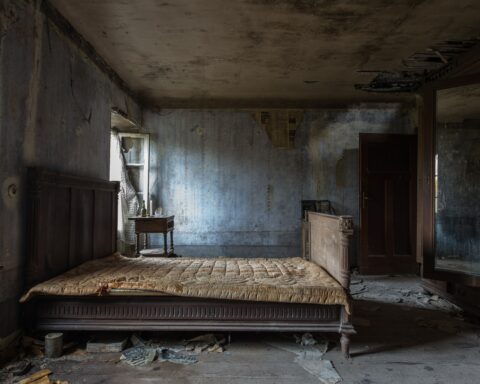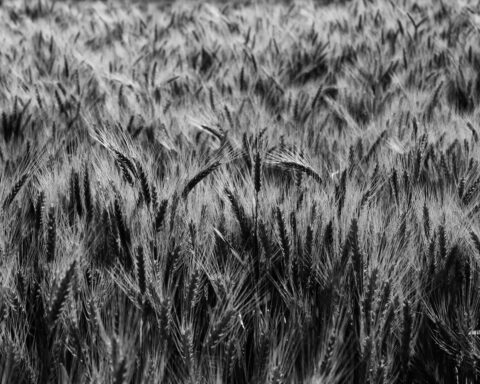From the Brokenness of Addiction to the Healing of Communion
Read Chuck’s interview with James B. Nelson about his book Thirst: God and the Alcoholic Experience.

An American – s/he could be any of us – discovers the proverbial magic lamp, replete with genie and three wishes. “I would like a checking account that never runs out,” the American states. POOF! Wish granted. The American is ecstatic. “Remember,” says the genie, “You have two more wishes.” “Oh! Well, then…I would like to have two more accounts just like this one!”
Since 1950, we Americans have used more material resources on God’s earth than everyone who ever lived before us. [1] Whether it be through alcohol or oil, money or sex, our national thirst for transcendence through power, property, and prestige challenges each of us as American Christians today.
How, then, can we be faithful to Christ in the midst of our contextual addictions?
First, let us confess that each of us is caught in addictive cycles – and that we are powerless to change them as individuals. Based on our fear of scarcity, we are caught in lifestyles of consumerism and entitlement that find expression in an all-too-human desire to possess rather than steward…to abuse rather than enjoy…to numb through excitement rather than delight through awareness. Each of us is driven to exploit external sources of God’s created pleasures in an attempt to palliate internal sources of fear.
___________________________________________
First, let us confess that each of us is caught in addictive cycles – and that we are powerless to change them as individuals.
___________________________________________
Such is healthy spirituality in reverse. In our Reformed tradition, healthy spirituality seeks instead to tap into our created instincts and gifts, that we may celebrate the Creator of all through our faithfulness to God’s reign.
 So how can we as Reformed Christians today promote healthy spirituality in a dominant culture held captive to the spirituality of addictions? How might we participate in the coming of God’s realm among us: the restoration of all individuals to God’s promise of wholeness?
So how can we as Reformed Christians today promote healthy spirituality in a dominant culture held captive to the spirituality of addictions? How might we participate in the coming of God’s realm among us: the restoration of all individuals to God’s promise of wholeness?
Since the Day of Pentecost, we as the Church and as individual Christians have been granted responsibility – read, the ability to respond – to the fractured soul of our addictive culture. We have been called and commissioned to heal the world’s addictions through spiritual practices.
Chief among these practices is to celebrate Communion: regularly, and “as often as each Lord’s Day.” [2] Celebrating Communion proclaims, in the face of our fear that “there’s not enough, (so) let’s get everything”, [3] that our God is abundant and that God’s abundance is for all – without exception.
When we commit ourselves to the spiritual practice of Communion, let us ask ourselves: how is the diversity of God’s children being represented around the table? The more diverse the recipients, the more we are freed from our dominant culture of addiction. Ask any actively recovering addict. Addiction funnels; diversity flowers. Addiction constricts; diversity expands. Addiction demands a uniform ritual. Diversity elicits a communicable dance.
___________________________________________
Another practice that makes for healing in our dominant addictive culture is advocacy in the public square for the right distribution of God’s abundance.
___________________________________________

Photo Credit: Office of Public Witness
Another practice that makes for healing in our dominant addictive culture is advocacy in the public square for the right distribution of God’s abundance. When the poor are being fed around the Communion table, the healing practice begins right there. And we know it must not stop there. This practice must continue through the shaping of public policy that affirms two core Reformed Christian principles:
- Our Creator is abundant enough that there is enough to be shared.
- What is good for the least of these is good for the whole.
Authentic and intentional practice of Communion – liturgically and publicly – is our primary liberating response to the fear of scarcity that breeds the dominant addictive culture that surrounds us. Let us celebrate God’s abundance around us accordingly!
Abundantly gracious God, we repent of treating your gifts to us as entitlements for us. Free us from the fear of scarcity and the idolatry of our addictions. In this spirit, we pray anew these words from Harry Emerson Fosdick’s classic hymn:
Cure Thy children’s warring madness,
Bend our pride to Thy control;
Shame our wanton selfish gladness,
Rich in things and poor in soul.
In Christ’s name. Amen.
_______________________________________________________________
[1] PBS documentary series “Affluenza”, 1997 – Scott Simon, host.
[2] Book of Order, W-2.4009.
[3] Walter Brueggemann, “The Liturgy of Abundance, The Myth of Scarcity”, The Christian Century, March 24-31, 1999.
AUTHOR BIO: The Rev. Charles “Chuck” Booker has been the pastor of Bethesda Presbyterian Church in Bethesda, MD, since mid-2009. Bethesda Church is the home of a 12-step clubhouse, the Del Ray Club, that provides the space for 50 meetings a week (AA, Al-Anon, and others) for approximately 150 persons per day.
He came to Bethesda following 11 fruitful years as Pastor of Northside Presbyterian Church in Ann Arbor, MI. His ministry background ranges from serving interracial congregations in an AZ barrio and a CA ghetto to staffing a suburban church in NC and pastoring a rural charge in OK. In AZ and CA, he worked for four years resettling countless Central American refugees seeking sanctuary from torture and slaughter in their homelands.
Chuck describes his ministry as one of “wounded healing.” An essential part of his story is his struggle in his 20s with depression, alcoholism, and other drug addiction. His night-into-light journey includes four psychiatric and substance abuse hospitalizations in the mid-’80s, plus two brief alcoholism relapses in the early ’90s. Through Chuck’s frailties, God in Christ has worked wonders with his life!
Read Chuck’s interview with James B. Nelson about his book Thirst: God and the Alcoholic Experience.





Unbound Social